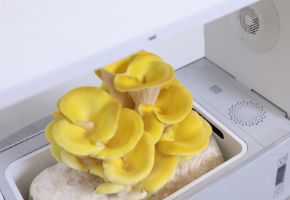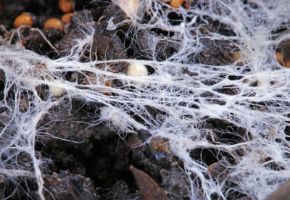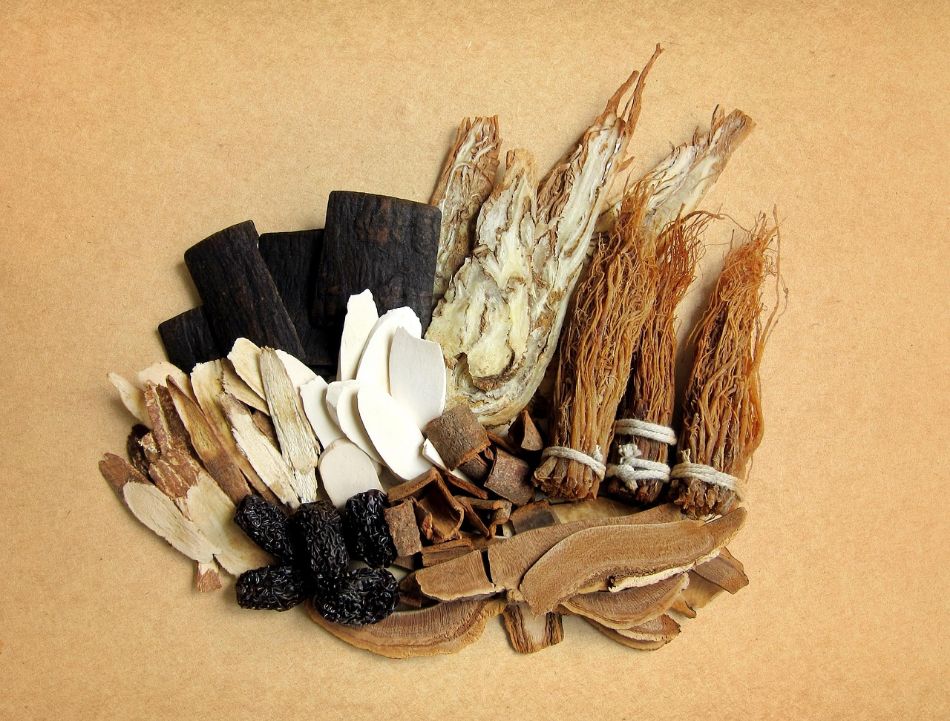In the vast landscape of natural therapies, mycotherapy is emerging as an innovative approach to emotional and physical well-being. This article explores in depth how medicinal mushrooms can be integrated into daily life to improve psychophysical health, reduce stress, and enhance the body's natural defenses. Mycotherapy, meaning the use of mushrooms for therapeutic purposes, has its roots in traditional Eastern medicines but is increasingly finding its place in modern wellness science. Together we will discover how these extraordinary organisms can positively influence our nervous, immune, and endocrine systems, contributing to lasting and profound emotional well-being. Mycotherapy is not a recent discovery, but rather a rediscovery of ancient knowledge rooted in the traditional medicines of various cultures. In this chapter, we will explore the historical origins of this practice and the scientific principles that justify its effectiveness in promoting emotional well-being. The medicinal use of mushrooms dates back thousands of years. In traditional Chinese medicine, documents dating back to 200 BC already described the healing properties of Reishi (Ganoderma lucidum), known as "the mushroom of immortality". Similarly, in European folk medicine, various mushrooms were used to treat various ailments, from infections to digestive problems. Modern studies have identified in medicinal mushrooms a wealth of bioactive compounds such as beta-glucans, triterpenoids, lectins, and ergosterol (a precursor to vitamin D), which explain their adaptogenic, immunomodulatory, and neuroprotective properties. Medicinal mushrooms contain a wide range of compounds that contribute to emotional and physical well-being: To delve deeper into the history of mycotherapy and its traditional applications, we recommend consulting the website of the Italian Mycological Association, which offers valuable resources for enthusiasts and scholars. In recent decades, scientific research has begun to validate many of the traditional applications of medicinal mushrooms. Over 600 clinical studies have been conducted on medicinal mushrooms, exploring their potential in oncology, immunology, and neurology. A study published in the "International Journal of Medicinal Mushrooms" showed how Reishi extract can significantly reduce symptoms of anxiety and depression, while also improving sleep quality. Other research has highlighted the neuroprotective properties of Lion's Mane (Hericium erinaceus), which appears to stimulate the production of Nerve Growth Factor (NGF), promoting the regeneration of nerve cells. The link between medicinal mushrooms and emotional well-being is based on complex physiological mechanisms involving the nervous, endocrine, and immune systems. In this chapter, we will analyze in detail how the bioactive compounds present in mushrooms interact with our body to promote psychophysical balance and resilience to stress. The hypothalamic-pituitary-adrenal (HPA) axis is our body's main stress response system. Adaptogenic mushrooms, such as Reishi and Cordyceps, modulate the activity of the HPA axis, helping the body maintain homeostasis even under conditions of prolonged psychophysical stress. A study conducted on 132 patients with chronic fatigue syndrome showed that supplementation with Cordyceps sinensis for 8 weeks significantly improved energy levels and reduced the perception of fatigue. Participants reported a 40% improvement in quality of life compared to the placebo group. Adaptogenic mushrooms act through multiple mechanisms: For a scientific deep dive into the mechanisms of action of medicinal mushrooms on the nervous system, we refer you to the portal PubMed, a specialized database for scientific literature. In addition to modulating the stress response, several medicinal mushrooms exert direct effects on cognitive functions and protection of the nervous system. Lion's Mane (Hericium erinaceus) is particularly known for its neuroregenerative properties, thanks to its ability to stimulate the synthesis of nerve growth factor (NGF). A randomized, double-blind clinical trial conducted in Japan evaluated the effects of Lion's Mane on patients with mild cognitive impairment. After 16 weeks of treatment, the group taking the mushroom extract showed significant improvements in cognitive functions compared to the placebo group, although these effects attenuated after discontinuing treatment. Integrating mycotherapy into your daily routine requires knowledge and awareness. In this chapter, we will explore practical methods of intake, recommended dosages, synergistic combinations, and necessary precautions to get the maximum benefit from medicinal mushrooms, with a specific focus on emotional well-being. Medicinal mushrooms can be consumed in different forms, each with specific advantages in terms of bioavailability of active compounds: Concentrated extracts: obtained through water and/or alcohol extraction processes, they allow for the concentration of active compounds and improve their absorption. They are particularly indicated for obtaining specific therapeutic effects. Whole mushroom powders: maintain the entire spectrum of nutrients present in the mushroom, including fibers that promote intestinal health. They generally have a more nutritional than therapeutic effect. Teas and decoctions: the traditional preparation that uses heat to extract water-soluble compounds. Particularly suitable for mushrooms like Reishi that require prolonged extraction in hot water. The optimal dosage varies depending on the type of mushroom, the form of preparation, and individual needs. The following table provides general guidelines for the use of the main adaptogenic mushrooms: To navigate the choice of quality products, we always recommend consulting with a specialist in mycotherapy. Depending on specific emotional well-being needs, integration protocols can be personalized: For anxiety and chronic stress: Reishi (1000-2000 mg of extract per day) + Lion's Mane (1000-2000 mg of extract per day). Reishi acts by modulating the stress response, while Lion's Mane supports nerve regeneration and counteracts the negative effects of cortisol on the brain. For mental fatigue and difficulty concentrating: Lion's Mane (1500-3000 mg of extract per day) + Cordyceps (1000-2000 mg of extract per day). This combination improves mental energy and cognitive clarity without excessive stimulant effects. For depressed mood and apathy: Cordyceps (1000-2000 mg of extract per day) + Reishi (500-1000 mg of extract per day) + Chaga (500-1000 mg of extract per day). Cordyceps improves vital energy, Reishi calms associated anxiety, Chaga reduces systemic inflammation often correlated with depressive states. Scientific validation is fundamental to fully understand the potential of mycotherapy for emotional well-being. In this chapter, we will examine the main scientific research, clinical studies, and meta-analyses that support the use of medicinal mushrooms in promoting mental and emotional health. Clinical research on mycotherapy is growing rapidly, with increasingly rigorous studies evaluating its efficacy. A 2020 systematic review published in the Journal of Medicinal Food analyzed 7 randomized controlled clinical trials on the use of medicinal mushrooms for neurological and psychological disorders. The results showed promising evidence for the use of Lion's Mane in mild cognitive impairment and Reishi for reducing anxious and depressive symptoms. However, the authors emphasized the need for larger and better-designed studies to confirm these preliminary results. Available data from scientific research indicate varying efficacy rates depending on the condition treated: Modern research has identified several mechanisms through which medicinal mushrooms exert their effects on emotional well-being: Immune system modulation: the beta-glucans present in mushrooms interact with receptors on macrophages and other immune cells, regulating the production of inflammatory cytokines. This is relevant for emotional well-being because systemic inflammation has been linked to various mental conditions, including depression and anxiety. Neuroprotective activity: compounds like ericenone from Lion's Mane stimulate the production of nerve growth factor (NGF), promoting the growth and differentiation of neurons. This mechanism explains the potential effects of this mushroom on cognitive functions and nerve regeneration. Modulation of the gut-brain axis: medicinal mushrooms, especially when consumed as whole powder, provide prebiotic fibers that support the gut microbiome. Considering the strong link between gut health and mental health (gut-brain axis), this represents an additional mechanism through which mushrooms can influence emotional well-being. Mycotherapy represents a promising and holistic approach to emotional well-being, rooted in both tradition and modern science. Medicinal mushrooms offer a unique range of bioactive compounds capable of modulating the stress response, supporting cognitive function, and promoting emotional balance through multiple mechanisms of action. The conscious integration of mushrooms like Reishi, Lion's Mane, Cordyceps, and Chaga into your daily routine can be a valid support for facing the emotional challenges of modern life. However, it is important to approach mycotherapy with awareness, respecting appropriate dosages, choosing quality products, and, when necessary, consulting health professionals. Scientific research on mycotherapy is rapidly evolving, and we expect that in the coming years new evidence will further clarify the potential of these extraordinary organisms for emotional well-being and global health. Emotional well-being and mushrooms: history and basic principles of mycotherapy
The ancient roots of mycotherapy
Active compounds in medicinal mushrooms
Compound Main function Mushrooms where present Beta-Glucans Immune system modulation, anti-inflammatory properties Reishi, Maitake, Shiitake, Cordyceps Triterpenoids Anti-stress action, liver support, anti-allergic properties Reishi, Chaga Ergothioneine Potent antioxidant, cellular protection Porcini, Maitake, Shiitake Lovastatin Cholesterol regulation Oyster mushroom, Pleurotus ostreatus Modern science rediscovering medicinal mushrooms
Mushrooms and the nervous system: mechanisms of action on emotional well-being
Modulation of the HPA axis and stress response
Mechanisms of action of fungal adaptogens
Neuroprotective and cognitive effects
Medicinal mushroom Effects on the nervous system Studied dosage Study duration Lion's Mane (Hericium erinaceus) Improved cognitive functions, neuroprotection 3g per day 16 weeks Reishi (Ganoderma lucidum) Reduced anxiety and depression, improved sleep 1.5-5g per day 4-12 weeks Cordyceps (Cordyceps sinensis/militaris) Reduced fatigue, improved stress resistance 1-3g per day 8-12 weeks
Practical integration: how to use mushrooms for daily well-being
Preparation forms and bioavailability
Dosage guide for emotional well-being
Mushroom Daily Dose (extract) Daily Dose (powder) Recommended Time of Intake Reishi 500-1500 mg 2000-5000 mg Evening (for sleep) or morning (for stress modulation) Lion's Mane 500-3000 mg 1000-5000 mg Morning or before demanding mental activities Cordyceps 500-2000 mg 1000-3000 mg Morning or before physical activity Chaga 300-1000 mg 1000-3000 mg With meals to improve absorption Integration protocols for specific emotional needs
Scientific research and evidence: what studies say about mycotherapy
Clinical studies on mushrooms and mental health
Statistics on the efficacy of mycotherapy
Condition Mushroom studied Number of participants Positive results Study duration Mild Cognitive Impairment Lion's Mane 50 84% showed cognitive improvements 16 weeks Anxiety Symptoms Reishi 132 67% reduction in anxiety symptoms 8 weeks Chronic Fatigue Cordyceps 109 72% improvement in energy 12 weeks Mild-Moderate Depression Reishi + conventional treatment 48 58% improvement vs 28% placebo 6 weeks Mechanisms of action confirmed by science
Emotional well-being: integrating mycotherapy to modulate stress
Attention:
This article is purely for informational purposes and does not replace the advice of a doctor or healthcare professional. Before introducing medicinal mushrooms into your diet or as a supplement, always consult an expert, especially in case of pathological conditions or taking medication.
The kingdom of fungi is a universe in continuous evolution, with new scientific discoveries emerging every year about their extraordinary benefits for intestinal health and overall well-being. From today onwards, when you see a mushroom, you will no longer think only of its taste or appearance, but of all the therapeutic potential contained within its fibers and bioactive compounds. ✉️ Stay connected - Subscribe to our newsletter to receive the latest studies on: Nature offers us extraordinary tools to take care of our health. Mushrooms, with their unique balance between nutrition and medicine, represent a fascinating frontier that we are only beginning to explore. Continue to follow us to discover how these extraordinary organisms can transform your approach to well-being.Continue your journey into the world of mushrooms










